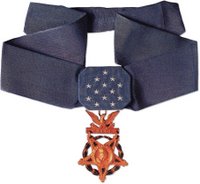PAUL ALOYSIUS KENNA
Captain, 21st Lancers
Born: 16 August 1862, Everton, Liverpool
Died: 30 August 1915, Suvla Bay, Turkey

Citation: At the Battle of Khartum on the 2nd September, 1898, Captain P. A. Kenna assisted Major Crole Wyndham, of the same Regiment, by taking him on his horse, behind the saddle (Major Wyndham's horse having been killed in the charge), thus enabling him to reach a place of safety; and, after the charge of the 21st Lancers, Captain Kenna returned to assist Lieutenant de Montmorency, who was endeavouring to recover the body of Second Lieutenant R. G. Grenfell.
[London
Gazette issue 27023 dated 15 Nov 1898, published 15 Nov 1898.]
THE HONOURABLE RAYMOND HARVEY LODGE JOSEPH de MONTMORENCY
Lieutenant, 21st Lancers
Born: 5 February 1867, Montreal, Canada
Died: 23 February 1900, Stormberg, Cape Colony

Citation: At the Battle of Khartum on the 2nd September, 1898, Lieutenant de Montmorency, after the charge of the 21st Lancers, returned to assist Second Lieutenant R. G. Grenfell, who was lying surrounded by a large body of Dervishes. Lieutenant de Montmorency drove the Dervishes off, and, finding Lieutenant Grenfell dead, put the body on his horse which then broke away. Captain Kenna and Corporal Swarbrick then came to his assistance, and enabled him to rejoin the Regiment, which had begun to open a heavy fire on the enemy.
[London
Gazette issue 27023 dated 15 Nov 1898, published 15 Nov 1898.]
 Citation: For conspicuous bravery at Betwah, on the 1st of April, 1858, in having charged alone, and rescued Captain Need, of the same Regiment, when surrounded by a large number of rebel Infantry.
Citation: For conspicuous bravery at Betwah, on the 1st of April, 1858, in having charged alone, and rescued Captain Need, of the same Regiment, when surrounded by a large number of rebel Infantry.














